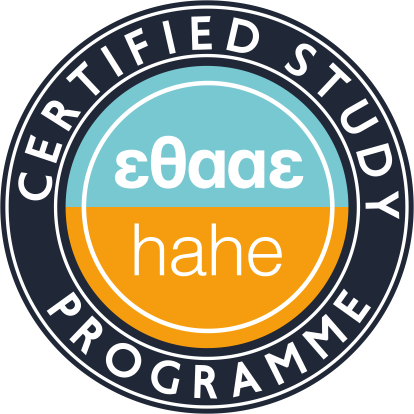After completing the course, it is expected that students will be able to:
To present the central characteristics of private enterprises and their basic financing needs based on these characteristics.
To expose the financing needs especially of small and medium enterprises according to the stage of their life cycle.
List alternative capital markets.
Expose the importance of considering risk in making financing decisions.
To analyze and present the basic theories of capital structure.
List and analyze sources of long-term, medium-term and short-term financing.
To present and analyze financing programs, especially for small and medium enterprises, in Greece and in the European Union.
Interpret and analyze key financial indicators of private businesses.
Analyze and present basic investment appraisal methods.
To use investment evaluation methods under certainty as a key tool in the investment decision-making process.
To explain the advantages and disadvantages of each method, as well as to interpret the results for the acceptance or rejection of an investment project.
To evaluate investment plans by incorporating risk into his analysis. He will also be able to choose the most appropriate evaluation method after he will become familiar with the advantages and limitations of each one.
The course emphasizes the sources of financing a business, especially in the first steps of its course, which play a decisive role in its evolution and subsequent development. But the financing possibilities are not only important for start-ups but also for companies that are going through a different stage of their life cycle. The main purpose of the course is for students to gain knowledge about the self-financing of businesses as well as the financial tools and financing programs that private and public organizations provide to private businesses, especially small and medium-sized, nationally, internationally and European level. In addition, students will acquire knowledge about the interpretation and analysis of economic indicators and investment evaluation methods under certainty, as a key tool in the investment decision-making process. But the course aims to convey to the student to evaluate investment plans by incorporating risk into his analysis. To be able to choose the most appropriate evaluation method, since he will become familiar with the advantages and limitations of each
Βασικά διδακτικά εγχειρίδια:
Ξενόγλωσση Βιβλιογραφία
Ενδεικτική Αρθρογραφία
Συναφή επιστημονικά περιοδικά
Journal of Finance
Journal of Financial Economics
Journal of Economics and Finance
Review of Financial Studies
Annual Review of Financial Economics
Review of Finance
Journal of International Money and Finance Economic Outlook

